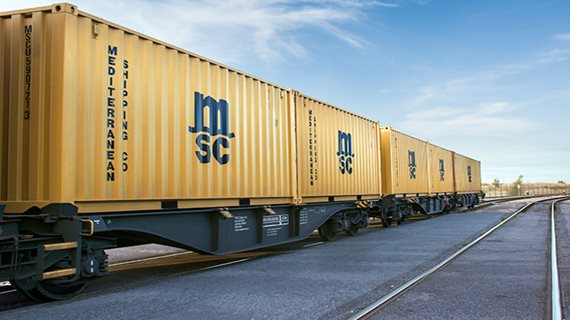European shippers were celebrating the announcement by Renfe Mercancias and MSC subsidiary Medlog to form a 50-50 joint venture company that will handle rail freight in Spain.
Yesterday’s joint announcement that the Renfe board of directors will seek approval from the Spanish Government and then the European Union’s (EU’s) council of ministers for the rail joint venture was greeted with scepticism by the European Shippers’ Council (ESC’s) strategic representative Jordi Espin, who is also secretary general of Transprime, Spain’s shippers’ council.
“Customers are not really excited about this joint venture,” Espin told Container News, “they just think this will present more barriers for shifting freight from road to rail.”
He went on to say in the Renfe announcement there was “no mention of customers or how this new company will improve services, so we will wait and see what happens”.
According to Espin, Renfe is not the best partner for cargo, claiming that its recent record is very poor. Some 10 years ago rail freight’s share of Spanish cargo was around 8%, “maybe a little less,” he said, since then it declined to 3-4%, about three to four years ago and today it is 2% or less.
“Since 2011 Renfe has lost €400 million, they need to stop losing money, instead they pretend to refresh the brand,” noted Espin.
Renfe’s announcement will see a more detailed business plan drawn up if and when the approvals from regulators are granted.
The business plan will be developed with Medlog and will include the assets that each of the JV partners will bring to the new entity.
Moreover, Renfe has guaranteed “100% employment of Renfe Mercancías workers,” which employs nearly 1,000 staff, “either by joining the new project or in Renfe,” under the same employment conditions.
Renfe believes “The incorporation of Medlog S.A. and the objectives set will improve the results of Renfe Mercancías and thus increase its business both in Spain and internationally.”
Espin was scathing about this part of the announcement also, acknowledging that it is crucial for the workforce to keep their jobs, but adding that once the focus is on maintaining the workforce it means the company is not focusing on providing the key element necessary, which is a good service for its customers.
Nevertheless, the JV announcement did make the following concession to its customers: “The objective is to guarantee the long-term sustainability of Renfe Mercancías by searching for a strategic partner that will allow us to expand the business and improve our profile as a logistics operator, with extensive implementation in Ports.”
Local media reports, however, also voiced their scepticism over the deal, saying that the unions had claimed that the JV is a form of backdoor privatisation of a state-owned asset.
Medlog formed a subsidiary company called Medway in 2016 following its acquisition of Portugal’s state-owned rail group, CP Carga. Medlog’s parent company acquired a 95% stake in CP Carga for €53 million, with the remaining 5% of shares distributed to staff.
Renfe Mercancias handled 640,000 TEUs in 2022, down 4.3% on the previous year.
Mary Ann Evans
Correspondent at Large







